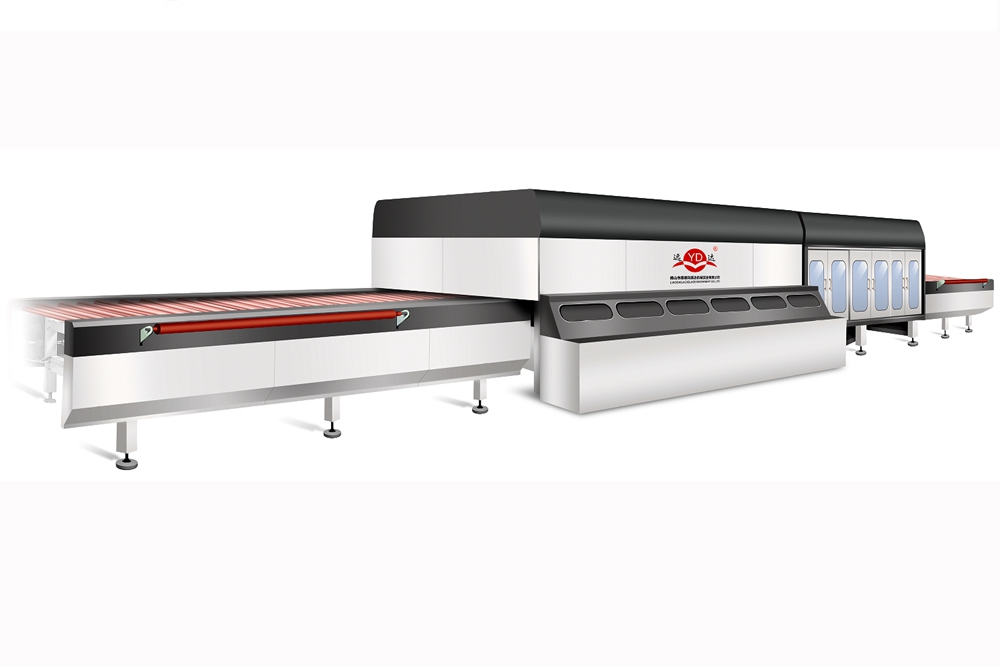Maintaining glass machinery is crucial for ensuring the longevity, efficiency, and safety of your equipment. Proper maintenance not only helps in extending the lifespan of the machinery but also reduces downtime and operational costs. Here are some essential maintenance tips to keep your glass machinery in top condition.
Regular Cleaning
One of the most fundamental maintenance practices is regular cleaning. Dust, debris, and residue from glass processing can accumulate on machinery surfaces and components. These contaminants can interfere with the operation of the machinery, leading to inefficiencies and potential damage. Regularly clean all accessible parts of the machine, including the cutting heads, blades, polishing wheels, and conveyor belts. Use appropriate cleaning agents and tools recommended by the manufacturer to avoid damaging sensitive parts.
Lubrication
Proper lubrication of moving parts is essential to prevent wear and tear. Lubricate bearings, gears, and other moving components as per the manufacturer's recommendations. Over-lubrication and under-lubrication can both cause issues, so it's important to follow the specified guidelines. Use high-quality lubricants that are compatible with the machinery. Regular lubrication helps in reducing friction, preventing rust, and ensuring smooth operation.
Calibration
Regular calibration of glass machinery is necessary to maintain precision and accuracy. Over time, machinery can drift out of alignment due to constant use and vibration. This can lead to errors in cutting, drilling, or shaping glass, resulting in wastage and reduced product quality. Schedule periodic calibration checks and adjustments as part of your maintenance routine. Use calibration tools and follow the manufacturer's procedures to ensure the machinery remains accurate.
Inspection and Replacement of Worn Parts
Routine inspection of all machinery parts is vital for identifying signs of wear and tear early. Components such as blades, belts, bearings, and seals are subject to constant stress and can deteriorate over time. Inspect these parts regularly for any signs of damage or wear. Replace worn or damaged parts promptly to prevent further damage to the machinery and ensure continuous operation. Keeping a stock of essential spare parts can help in minimizing downtime during replacements.
Monitoring and Adjusting Operating Parameters
Glass processing machines often operate under specific parameters such as temperature, pressure, and speed. Monitoring these parameters is crucial for maintaining optimal performance. Deviations from the recommended operating conditions can cause inefficiencies and damage to the machinery. Use sensors and monitoring systems to keep track of these parameters. Make necessary adjustments to ensure that the machinery operates within the specified limits.
Software and Firmware Updates
Modern glass machinery is often equipped with software and firmware that control various functions. Regularly check for updates from the manufacturer and ensure that your machinery's software and firmware are up to date. Updates can include performance improvements, bug fixes, and new features that enhance the functionality and reliability of the machinery. Keeping the software and firmware updated can prevent potential issues and improve the overall efficiency of the equipment.
Training and Operator Competence
Proper training of operators is essential for the maintenance and longevity of glass machinery. Operators should be well-versed in the correct usage, maintenance procedures, and safety protocols. Regular training sessions and refresher courses can help in keeping the operators updated with the latest best practices. Competent operators are less likely to make errors that can lead to machinery damage and are better equipped to identify and address minor issues before they escalate.
Environmental Considerations
The operating environment of glass machinery can significantly impact its longevity. Ensure that the machinery is installed in a clean, dry, and well-ventilated area. Excessive dust, humidity, and temperature fluctuations can cause damage to the machinery and affect its performance. Implement measures to control the environmental conditions, such as using air filters, dehumidifiers, and climate control systems.
Safety Precautions
Lastly, always prioritize safety during maintenance activities. Follow all safety protocols and use appropriate personal protective equipment (PPE) such as gloves, safety glasses, and protective clothing. Disconnect the machinery from the power source before performing any maintenance tasks to prevent accidental startups. Ensuring the safety of maintenance personnel not only protects them from injuries but also prevents accidental damage to the machinery.
By following these maintenance tips, you can ensure the longevity and optimal performance of your glass machinery. Regular and proactive maintenance helps in minimizing downtime, reducing operational costs, and maintaining high product quality, ultimately contributing to the overall efficiency and profitability of your operations.
